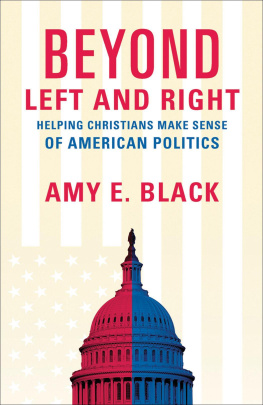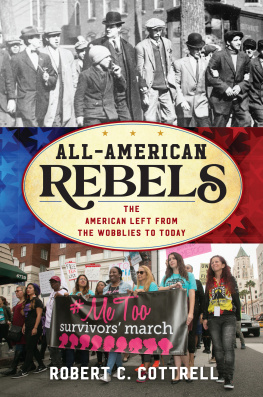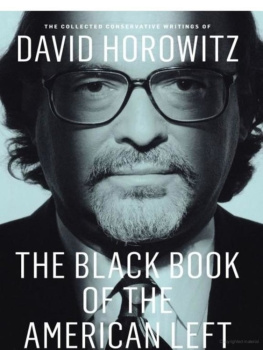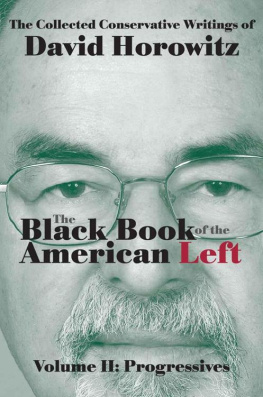Thank you for downloading this Simon & Schuster eBook.
Join our mailing list and get updates on new releases, deals, bonus content and other great books from Simon & Schuster.
C LICK H ERE T O S IGN U P
or visit us online to sign up at
eBookNews.SimonandSchuster.com
We hope you enjoyed reading this Simon & Schuster eBook.
Join our mailing list and get updates on new releases, deals, bonus content and other great books from Simon & Schuster.
C LICK H ERE T O S IGN U P
or visit us online to sign up at
eBookNews.SimonandSchuster.com
For Jessica, Jolie, and Asa
Theres one thing I want to tell you, lad. You cant live in two worlds. Its one world or the other. We learned that long ago. And we dont live in two worlds. Our Party is our world. Its the world of the future. Out there, Nolan made a sweeping gesture toward the window, is the dead world. Its that world or this world.
THE RENEGADE , JAMES FARRELL
Contents
Introduction
T his is a book about why six men changedwhy they moved from one set of political beliefs to staunchly different ones. Its also a history of the American Left in the twentieth century, and the rise of the Right. At its most basic level, its a book about how we come to believe at all. Why is it that each of us holds the beliefs that we do? Why do we follow this set of politics, vote for this party, and associate with these people?
There are obvious answers: Because its what our mom and dad taught us to do. Because of that professor in college whose insights punctured the bubble of our childhood beliefs, liberating us to discover for ourselves what seems true and right. Because of the faith community in which we were raised, and its stubborn persistence in offering up lives that seem decent and honorable and worth emulating. We act because were made indignant by injustice. Or because our failures taste bitter, and we project that bitterness onto the world and call it injustice. Age brings responsibility and maturity, and we let go of the utopian fantasies of our youth. Affluence brings anxiety and guilt; its opposite brings anger and blame. Our bodies break down and we grow fearful and angry, or compassionate and wise. We marry an activist because we admire his commitment, then divorce him because of his narcissism. We hate our job. Were inspired by our new job. Were caught up in a movement, or an epoch. Were mugged by reality. Become the victim of history. Its in our genes. Its complicated.
We know all this. We know belief is complicated, contingent, multi-determined. But do we really know it? Do we feel it? Do we act as though its true, with the humility that such knowledge would entail? Not most of us. Not most of the time. Thats one good reason why the stories of Whittaker Chambers, James Burnham, Ronald Reagan, Norman Podhoretz, David Horowitz, and Christopher Hitchens are worth telling. Not because we need to understand them so that we can inoculate ourselves against their heresies, or bask in their enlightenments. Not because the drama of political change in itself is so compelling, though it is. The stories are worth telling because its during the period of political transition, when the bones of ones belief system are broken and poking out through the skin, that the contingency and complexity of belief become most visible.
The ex-communist is the problem child of contemporary politics, wrote the eminent Trotskyist writer Isaac Deutscher in 1950, reviewing an anthology of essays by ex-communists. He was right about that, but blinkered in the extent to which he was capable of understanding why. The ex-believersthe heretics, the apostatesare the problem children of any politics, in any time. They are the ones who reveal how shaky the ground beneath us always is.
What if Whittaker Chambers had come of age not in the 1920s and 30s but in the 1960s and 70s, when the intense spiritual energies of young men from repressed and dysfunctional families were as likely to be channeled into the counterculture as they were into radical politics, and when there was more breathing room in the culture for sexual experimentation? Would he have ended up a hippie instead of a communist spy? Would he have come out as gay rather than loathing himself for his dalliances with men? Would he have ended up lecturing at Berkeley rather than renouncing his beliefs and helping put his old comrade Alger Hiss behind bars for espionage? Impossible to say.
Would David Horowitz have stayed on the Left if a colleague hadnt been killed by Horowitzs allies in the Black Panther Party? Probably. His life had been lived so completely within the cosmos of the Left, his identity constructed so completely of its materials, that its hard to imagine that without a truly catastrophic shock he could have made the journey all the way over to conservatism. But that shock came, and in its aftermath Horowitz became one of the fiercest critics of the legacy of the 1960s counterculture. Would Norman Podhoretz have turned to the Right even if his good friend Norman Mailer had written an enthusiastic review of Podhoretzs memoir, rather than the critical one Mailer did in fact write? Probably. Many of Podhoretzs friends and intellectual allies turned toward neoconservatism over the period of time he did, out of convictions and affinities he shared. But it would have taken longer for Podhoretz to get there, and the kind of person and writer he would have become would have felt very different. What if Ronald Reagans movie career had been more successful, and hed never gone to work for General Electric? Would he have remained the New Deal liberal he was to that point? Hard to say. What if the 9/11 hijackers had failed? Or George W. Bush hadnt been interested in connecting the attack with the need for regime change in Iraq? Without the lever of the Iraq War, would Christopher Hitchens have been separated from the Left? Maybe not. Maybe so.
What about us? Could we be wrong about everything? Would we believe differently if we were born only twenty years earlier, or later? Could we be as frail and fallible as these apostates so visibly are, only without the courage or bad judgment to put it all out there for the world to see?
That such questions are impossible to answer should give us pause. Not so much pause that we go about our lives refusing to act or believe passionately. But pause enough to recognize that political belief, if were to act on it, should be hard-earned. It should bear evidence of confrontation with the abyss, of an awareness that the grounds of our beliefs are more contingent than we could possibly ever account for. And even if were not political actors in the way the characters in this book are, our political beliefs should have to fight to earn a meaningful place in our lives. They should fight with their opposites, with the possibility of their absence, and with the possibility that there is no ground for them at all.
It is easy to disparage other peoples politics by psychologizing, historicizing, biologizing, or sociologizing them. The harder and more important truth to admit is that everyones politics are resonating on all of these frequencies. Once that point is granted, it casts into relief the problem with one of the charges that is so often leveled against political turncoats, which is that they are acting out personal issues. Of course they are. Thats what being human entails. The better questions, or at least the ones with which this book is concerned, have to do with what we can learn about the world and ourselves by observing that process with empathy and respect. Also, what does it look like when someone does it well? Or poorly? We can make judgmentswe cant not make judgmentsbut they should be made with an awareness of how hard it is to be a person in the world, period, and how much more confusing that task can become when you take on responsibility for repairing or redeeming it.
Next page








